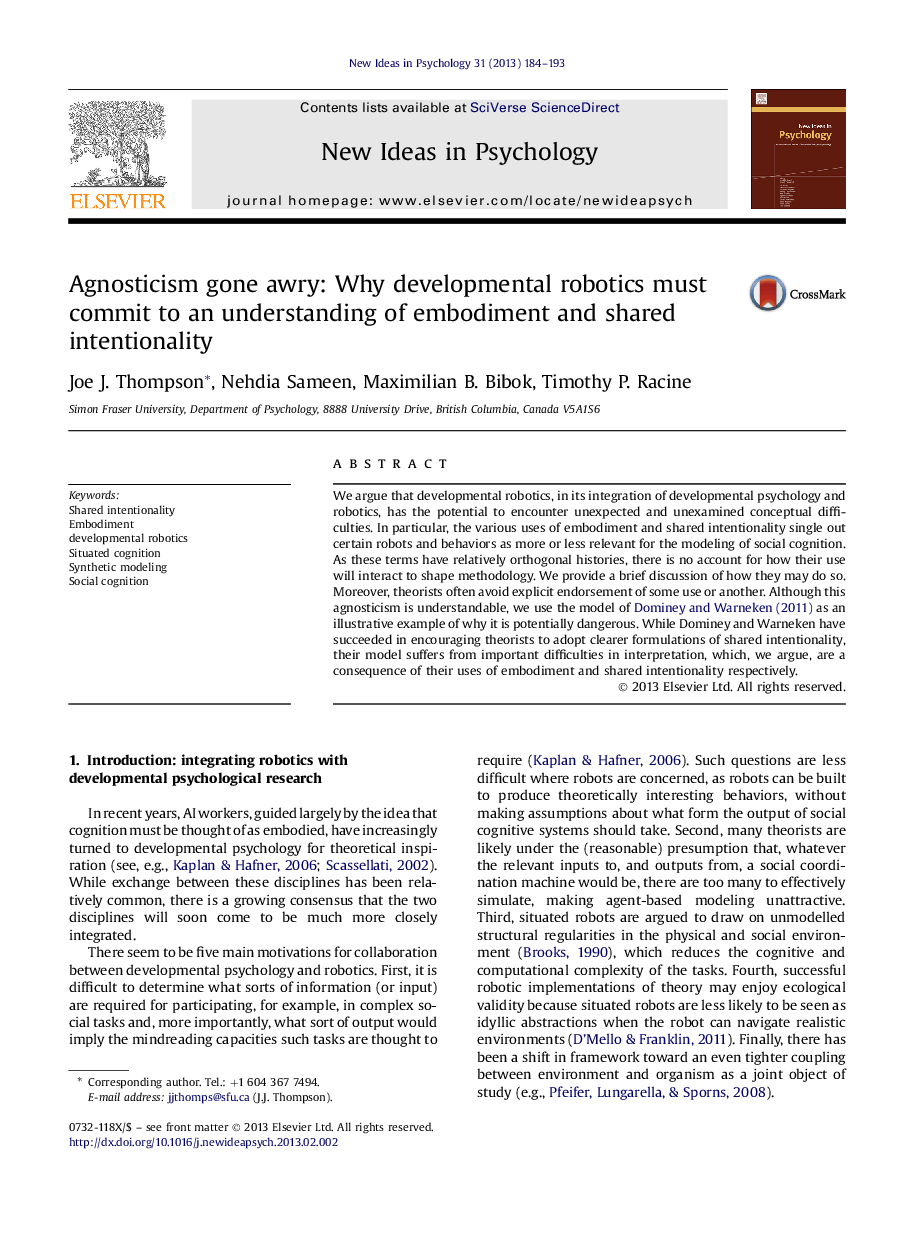| کد مقاله | کد نشریه | سال انتشار | مقاله انگلیسی | نسخه تمام متن |
|---|---|---|---|---|
| 331457 | 544327 | 2013 | 10 صفحه PDF | دانلود رایگان |

We argue that developmental robotics, in its integration of developmental psychology and robotics, has the potential to encounter unexpected and unexamined conceptual difficulties. In particular, the various uses of embodiment and shared intentionality single out certain robots and behaviors as more or less relevant for the modeling of social cognition. As these terms have relatively orthogonal histories, there is no account for how their use will interact to shape methodology. We provide a brief discussion of how they may do so. Moreover, theorists often avoid explicit endorsement of some use or another. Although this agnosticism is understandable, we use the model of Dominey and Warneken (2011) as an illustrative example of why it is potentially dangerous. While Dominey and Warneken have succeeded in encouraging theorists to adopt clearer formulations of shared intentionality, their model suffers from important difficulties in interpretation, which, we argue, are a consequence of their uses of embodiment and shared intentionality respectively.
► ‘Shared intentionality’ and ‘embodiment’ constrain methodology in unforeseen ways.
► Robotic implementations of these concepts suffer difficulties of interpretation.
► Theorists are encouraged to make explicit the concepts relevant to their research.
Journal: New Ideas in Psychology - Volume 31, Issue 3, December 2013, Pages 184–193